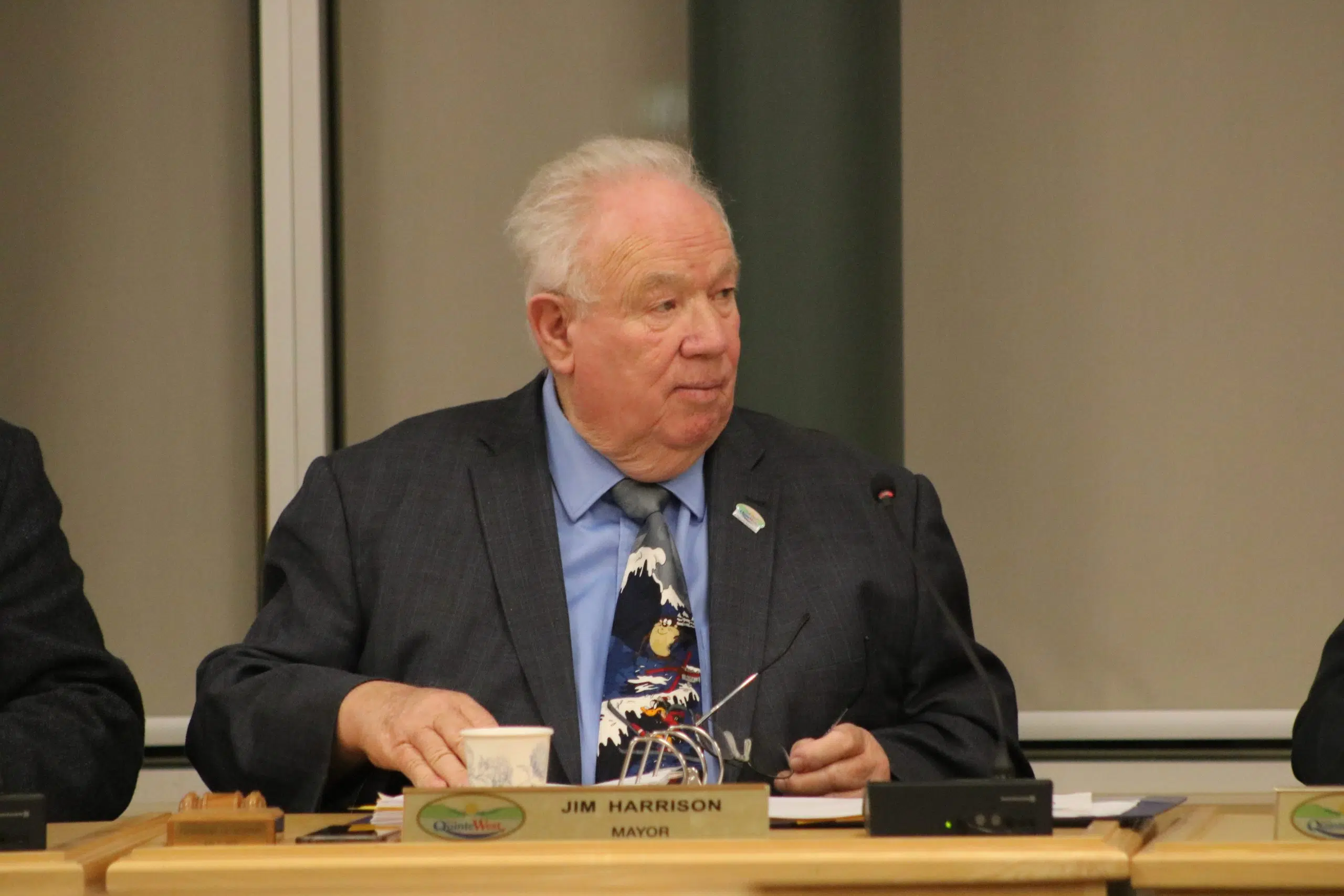Representatives of the City of Quinte West are prepared for this year’s Association of Municipalities of Ontario conference with a list of issues they’d like to see addressed.
The conference, which happens annually, offers a chance for municipalities to meet directly with provincial ministers to address specific topics.
For the second year in a row the conference will happen virtually and it begins this Sunday.
Quinte West Mayor Jim Harrison shared some of the municipality’s agenda items.
First and foremost they’ll speak with the Ministry of Natural Resources and Forestry about the gypsy moth problem.
The issue has been well documented in the Bay of Quinte, specifically over the last year, with the moths devouring hectares of trees across the region. Local municipalities have been in a deadlock with the ministry over a solution with the municipalities insisting the government help implement a regional spraying program and the ministry insisting that it is the responsibility of the municipalities.
Harrison reiterated that they need the province to step in.
“We’ve got to work together and the province has to work with us. We can’t do it alone and there’s many needs. People have suffered through a devastating situation this past year and we need to help them get through it. We must save our trees, we must do everything we can.”
Harrison confirmed that representatives of Quinte West will make a joint delegation on gypsy moths with Hastings County and the City of Belleville who have also collected data and information.
Next, Harrison said they’ll be talking to the Ministry of Municipal Affairs and Housing with regards to both expansion of official plan boundaries to the west and about affordable housing.
“Our official plan, right now, takes us out toWalmart on the west end as far as urban development is concerned. We want to expand that boundary out to Wooler Road and Highway 2. We would like to see more commercial development along that area through Highway 2 and up Wooler Road and out through there to enhance the diversification of the city and the availability of manufacturing, car lots, sales, different businesses and we need the province to realize that we need to move that boundary out there.”
The official plan is a provincially mandated document that guides development and zoning, among other things, in every municipality in Ontario.
The next big issue they’re looking to tackle is the expansion of broadband services, according to Harrison.
He said that it’s become obvious in the past year that good internet service is essential and they would like the province to help expand broadband internet service in the municipality.
“Everybody has proven over this pandemic that the ability to work from home is dependent on the internet service that you have available to you. We want the government to help us with the expansion of broadband internet into the rural areas and also right here in ward one in Trenton. It needs to be upgraded and improved to a higher quality.”
Recently the federal and provincial governments announced a joint funding of $362 million through the Improving Connectivity for Ontario (ICON) program to bring high speed internet to 90,000 rural eastern Ontario homes.
Other items on the agenda include 401 expansion and economic growth and development.






